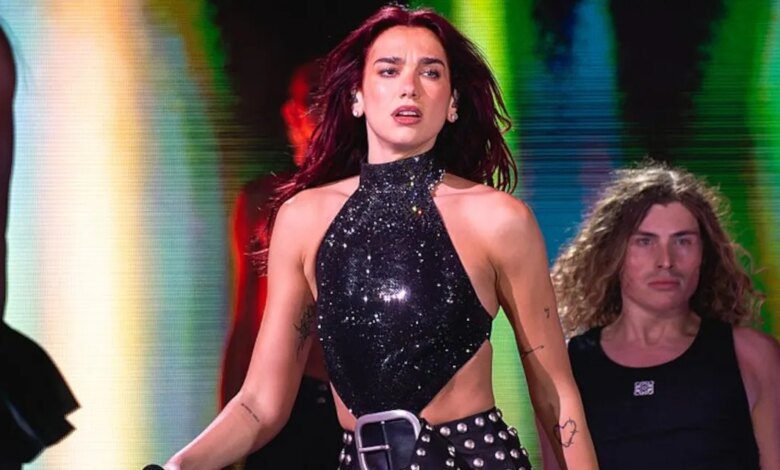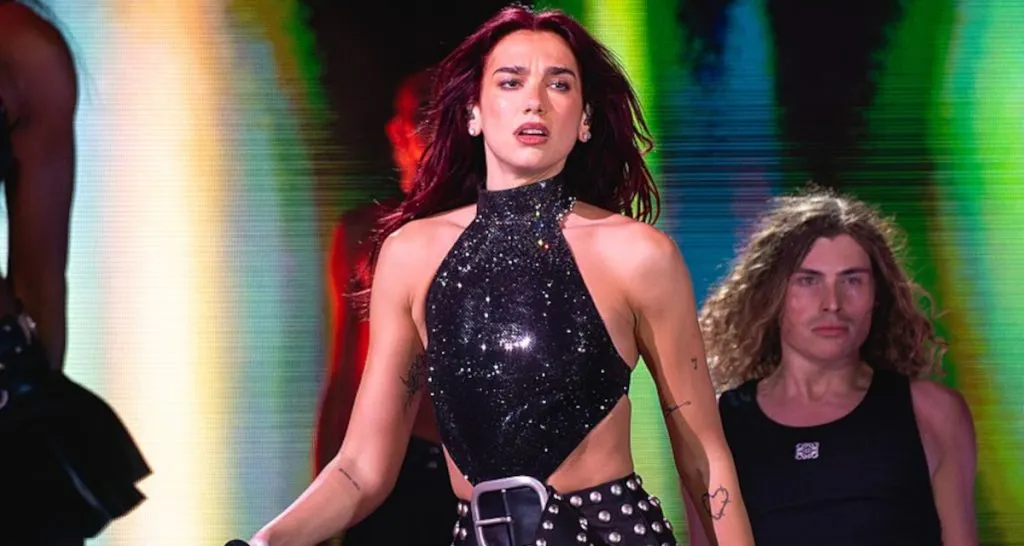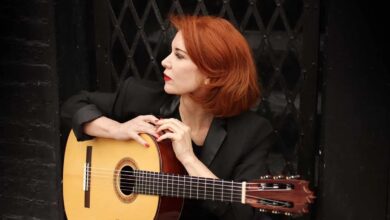Dua Lipa Beats Years-Old ‘Levitating’ Infringement Suit — Judge Says Certain Musical Elements ‘Cannot Possibly Be Protectable’


Dua Lipa, who’s scored a win in a copyright infringement case centering on ‘Levitating,’ performing at Glastonbury. Photo Credit: Raph_PH
A federal judge has put an end to a long-running copyright case against Dua Lipa, finding that she didn’t infringe on a pair of decades-old tracks to create “Levitating.”
Judge Katherine Failla closed the suit today by granting Dua Lipa’s motion for summary judgement. We’ve covered the copyright confrontation since it kicked off in early 2022, following the October 2020 release of “Levitating.”
Just to recap, plaintiffs including Larball Publishing Company maintained that Lipa and others had ripped off two works to create the much-streamed “Levitating”: 1979’s “Wiggle and Giggle All Night” and 1980’s Spanish-language “Don Diablo.”
Like in a number of infringement battles, the parties enlisted qualification-equipped (though, if Lipa’s legal team is to be believed, not exactly impartial) “experts” to advance their arguments.
On top of wrapping the case – more about this main point in a moment – Judge Failla today rejected the defendants’ calls to exclude the opposing side’s expert testimonies in their entirety.
Stated briefly, the judge found that the two reports at hand, despite Lipa’s qualms concerning methodology and alleged bias, “meet the standard for reliability.”
Potentially significant when it comes to different infringement showdowns’ musicologist remarks is that Judge Failla did, however, agree to exclude “impermissible conclusions of law” from the reports.
In directly alleging copyright infringement, beyond analyzing the appropriate works’ purported technical overlap, the plaintiffs’ experts “usurp the role of the factfinder in applying the law to the facts,” per the court.
Back to the core summary judgement determination, between all the allegations, reports, and back-and-forth, the judge indicated that, according to the plaintiffs, the “actionable copyright infringement in this case distills to one descending scale plus one additional identical note.”
Citing (among other things) the Structured Asset Sales v. Ed Sheeran case, Judge Failla found these and different elements, individually and when combined, to be unprotectable.
“More fundamentally,” the judge proceeded here, “the Court finds that a musical style, defined by Plaintiffs as ‘pop with a disco feel,’ and a musical function, defined by Plaintiffs to include ‘entertainment and dancing,’ cannot possibly be protectable — alone or in tandem — because to hold otherwise would be to completely foreclose the further development of music in that genre or for that purpose.”
With that, the court formally closed the case, which is one of multiple infringement actions filed against Lipa over “Levitating” in particular.



